
Written By:
 Dr. Rashi Bahuguna
Dr. Rashi Bahuguna
 Dr. Rashi Bahuguna
Dr. Rashi Bahuguna
Published On: 24 Nov, 2020 4:37 PM | Updated On: 27 Feb, 2026 11:21 PM
Everything you need to know about Pfizer vaccine
Pfizer-BioNTech is a Lipid nanoparticle-formulated mRNA vaccine that encodes the SARS COV-2 spike protein, which aids virus entry into cells.
The Pfizer-BioNTech vaccine has been approved by the Food and Drug Administration. It is approved for use in an emergency for vaccination of the population against the COVID-19 virus, and is thus known as the Emergency Use Authorization (EUA) vaccine. It was approved on December 13, 2020 for use in an emergency for vaccination of the population against the COVID-19 virus.
● In the midst of the second wave of the pandemic, a group of in-house experts in India have accepted Sputnik-V, a vaccine produced by Russia against the coronavirus disease (Covid-19).
● This will be the third Covid-19 vaccine used in India, after Covishield and Covaxin, if the Drugs Controller General of India approves it (DCGI).
● Dr Reddy's Laboratories, a Hyderabad-based pharmaceutical company, applied to the government last week for permission to use the vaccine in India.
● The Russian vaccine has a 91.6 percent efficacy rate, according to an interim analysis of phase III clinical trials that included data from 19,866 volunteers in Russia.
● The company is conducting Phase III clinical trials in the UAE, India, Venezuela, and Belarus, according to the Sputnik-V website. RDIF partnered with Hyderabad-based Virchow Biotech Private Limited in March to manufacture up to 200 million doses of Sputnik V per year in India, according to news agency PTI.
● In April, it established partnerships with Stelis Biopharma Pvt Ltd and Panacea Biotec to generate 200 million and 100 million Sputnik V doses per year, respectively, in the field.
Dose and Dosage Regimen
The Pfizer vaccine is given intramuscularly in the deltoid muscle in a dose of 0.3 mL. It is a two-dose vaccine, with the second dose given 21 days (three weeks) after the first. Each multi-dose vial contains six doses.
Sodium chloride, 0.9 percent In vaccines, normal saline is used as a diluent, and a new vial is used each time the vaccine is given.
Precautionary measures
1. If the vaccine recipients have an allergy to any other vaccine or injectable (intramuscular, intravenous, or subcutaneous).
2. If the vaccine recipient has an allergy to one or more vaccine components or ingredients, but the specific ingredient is unknown.
3. Individuals who are ineligible for the Janssen COVID-19 vaccine.
4. Vaccination should be avoided by patients with moderate to severe acute illnesses.
Adverse Reactions
First dose
Clinical Trials
•Pain at the injection site
•Fatigue
•Headache
•Muscle pain
•Chills
•Joint pain
•Fever
•Swelling at the injection site
•Redness at the injection site
•Nausea
•Malaise
•Lymphadenopathy
Post authorization
Anaphylaxis and other hypersensitivity reactions are seen in this phase
•Rashes
•Pruritus
•Urticaria
•Angioedema
Second dose: The intensity of side effects increases after second dose
•Severe pain at the injection site
•Severe fatigue
•Severe headache
•Severe muscle pain
•Severe chills
•Severe joint pain
•Severe fever
•Severe swelling at the injection site
•Severe redness at the injection site
•Severe nausea
•Severe malaise
•Severe lymphadenopathy
•Severe rashes
•Severe pruritus
•Severe urticaria
•Severe angioedema
Special Groups
1.Elderly and pediatric population
Older age groups and the pediatric population can have any type of serious effect on vaccine administration as safety data is not available for these populations hence vaccination should be done cautiously.
2.Hypersensitivity reaction or Anaphylaxis
Individuals who are allergic to the vaccine or its ingredients should not get vaccinated as it could become serious.
3.Comorbidities
The patients who have any type of co-morbid disease like liver, kidney or heart disease, etc have a greater risk of development of adverse reactions so they should be given extra care after vaccination.
4.Pregnancy and Breastfeeding
The vaccine can have severe adverse reactions like abnormalities in newborns and can be harmful to the fetus so vaccination should be prohibited in pregnancy and breastfeeding as safety data is not available.
5.Concomitant vaccines
The safety and efficacy of Pfizer with other vaccines are not studied in the population so the two vaccines should not be administered simultaneously.
Efficacy of Pfizer Vaccine
According to a recent study conducted by the Ministry of Health, after the second dose of vaccine, immunity grows stronger as antibodies against Covid-19 infection are generated, and the vaccine is 97 percent effective in preventing symptomatic disease and death.
What is the duration of the Pfizer vaccine?
Pfizer's vaccine was 91.3 percent effective on 927 patients with symptomatic disease assessed seven days to six months after the second dose, according to a report. The vaccine was found to be 100 percent effective against serious disease by the US Centers for Disease Control and Prevention (CDC), and 95.3 percent effective against Covis-19 by the US Food and Drug Administration (FDA).
Effect of Pfizer- BioNTech on New Mutant Variants
When a virus continues to circulate or spread in a large population, the virus's DNA changes to adapt to the changing conditions of the global population; this mechanism is known as evolution, and the new virus is known as variant. The genome of the virus changes as a result of this mutation, making it more resistant to existing medications or vaccines. As a result, the efficacy of the Pfizer vaccine may decrease due to resistance, or it may become completely ineffective, as the vaccine's efficacy and safety on new variants are not fully established.
Concluding note
Pfizer-BioNTech vaccine is approved for emergency use to prevent COVID-19 disease and has a variety of indications and contraindications, including allergy, paediatric, and elderly groups, among others. As a result, the vaccine can cause a variety of adverse reactions or side effects, some of which can be fatal to the person receiving it. As a result, the vaccine should be given with caution to the vulnerable group. To protect patients from severe or fatal conditions, health care professionals are expected to disclose side effects or adverse reactions caused by vaccines.


.jpg)
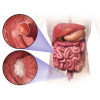
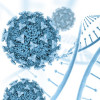
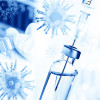
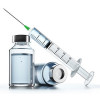
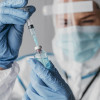
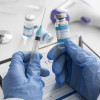
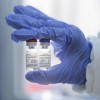
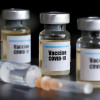
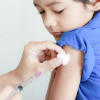
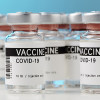
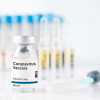
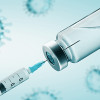

Please login to comment on this article